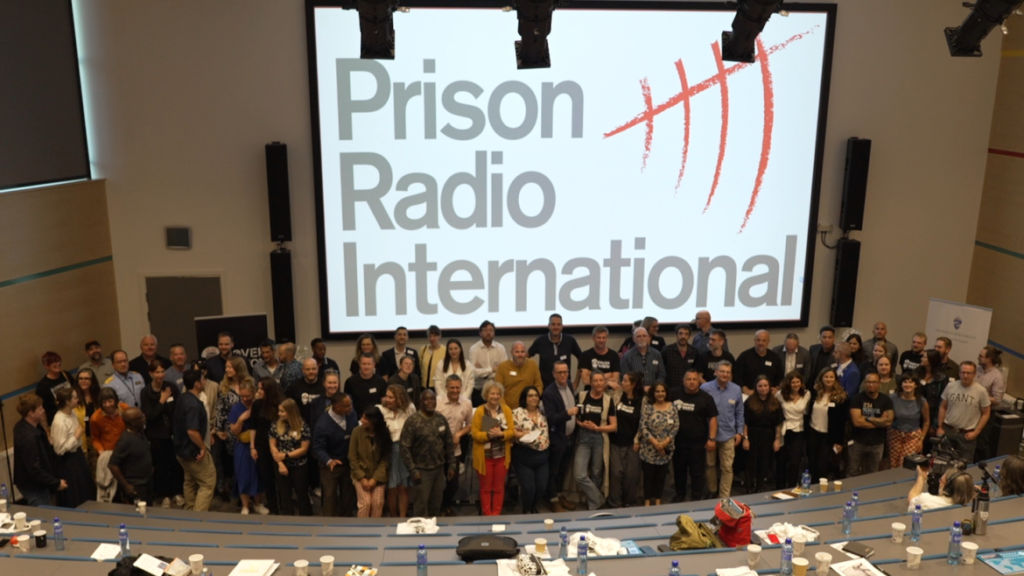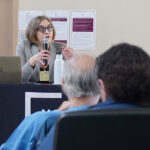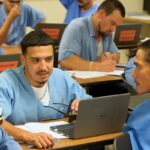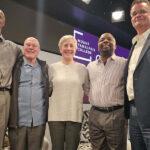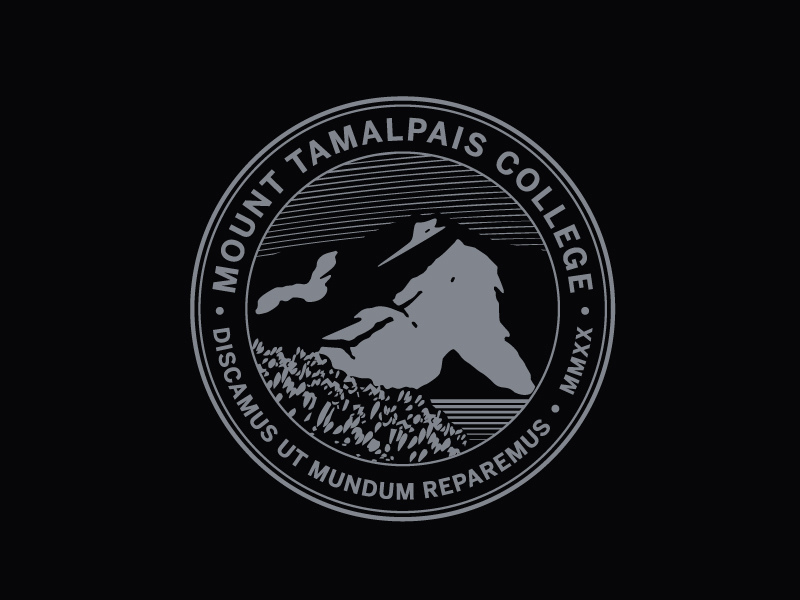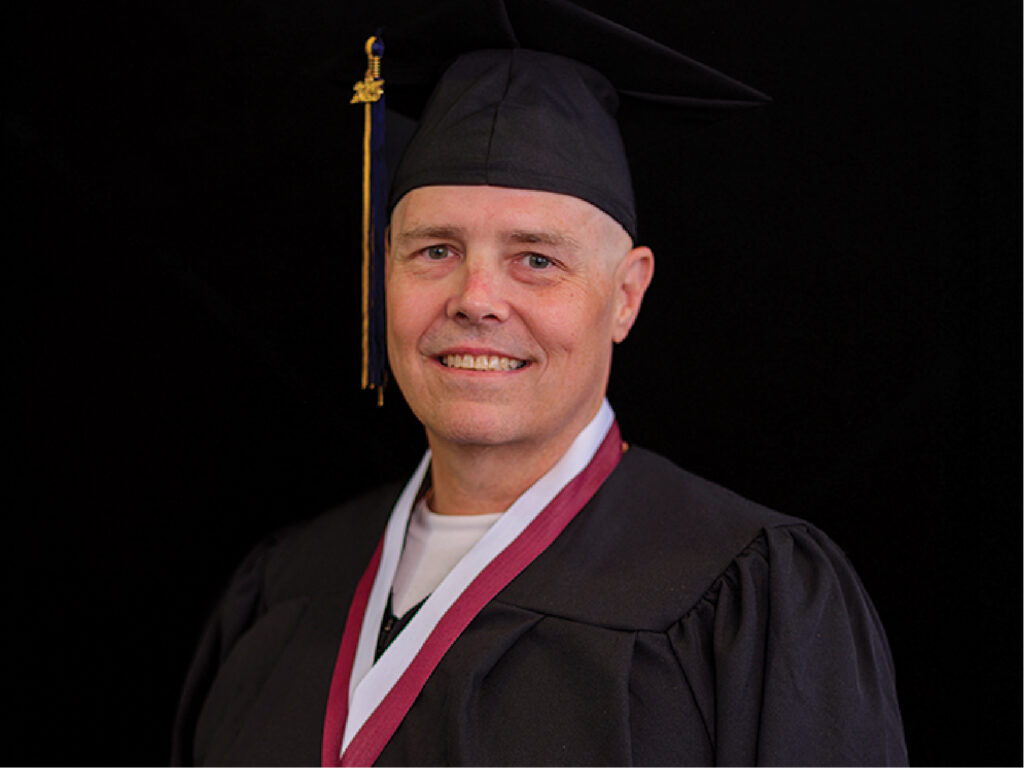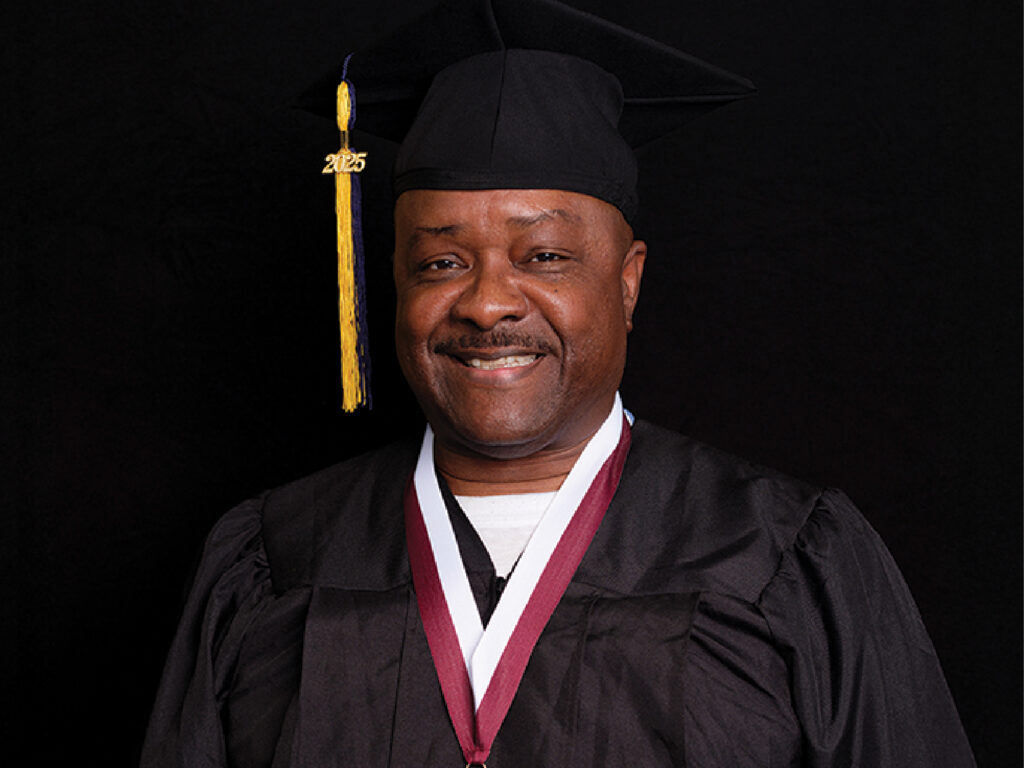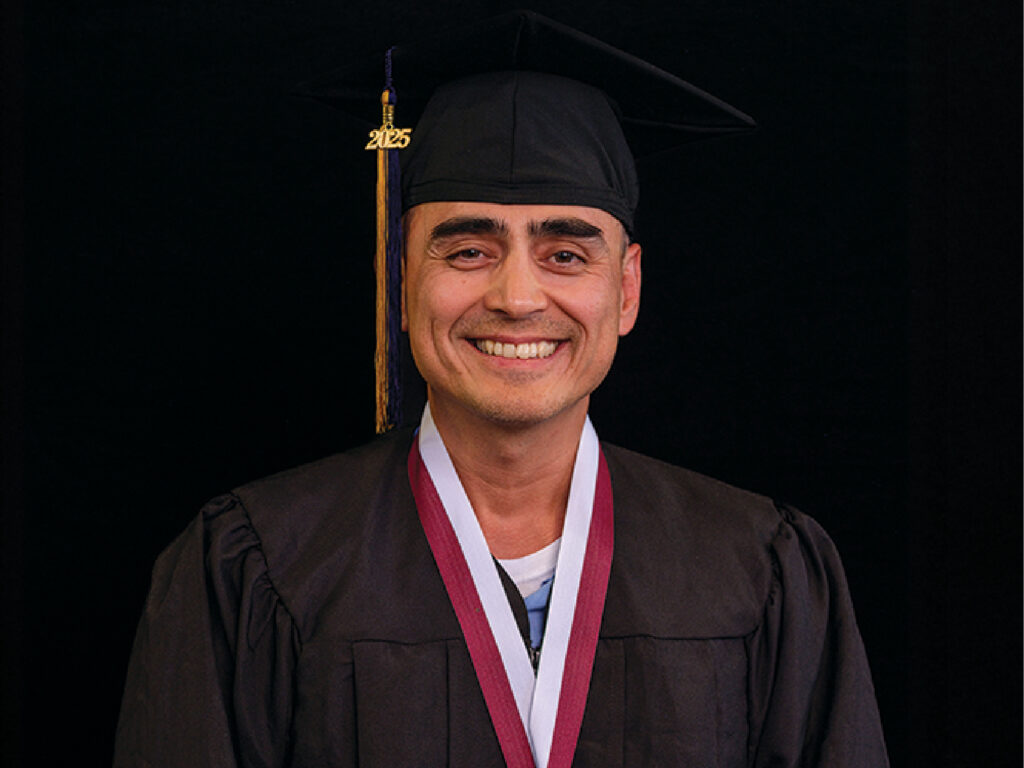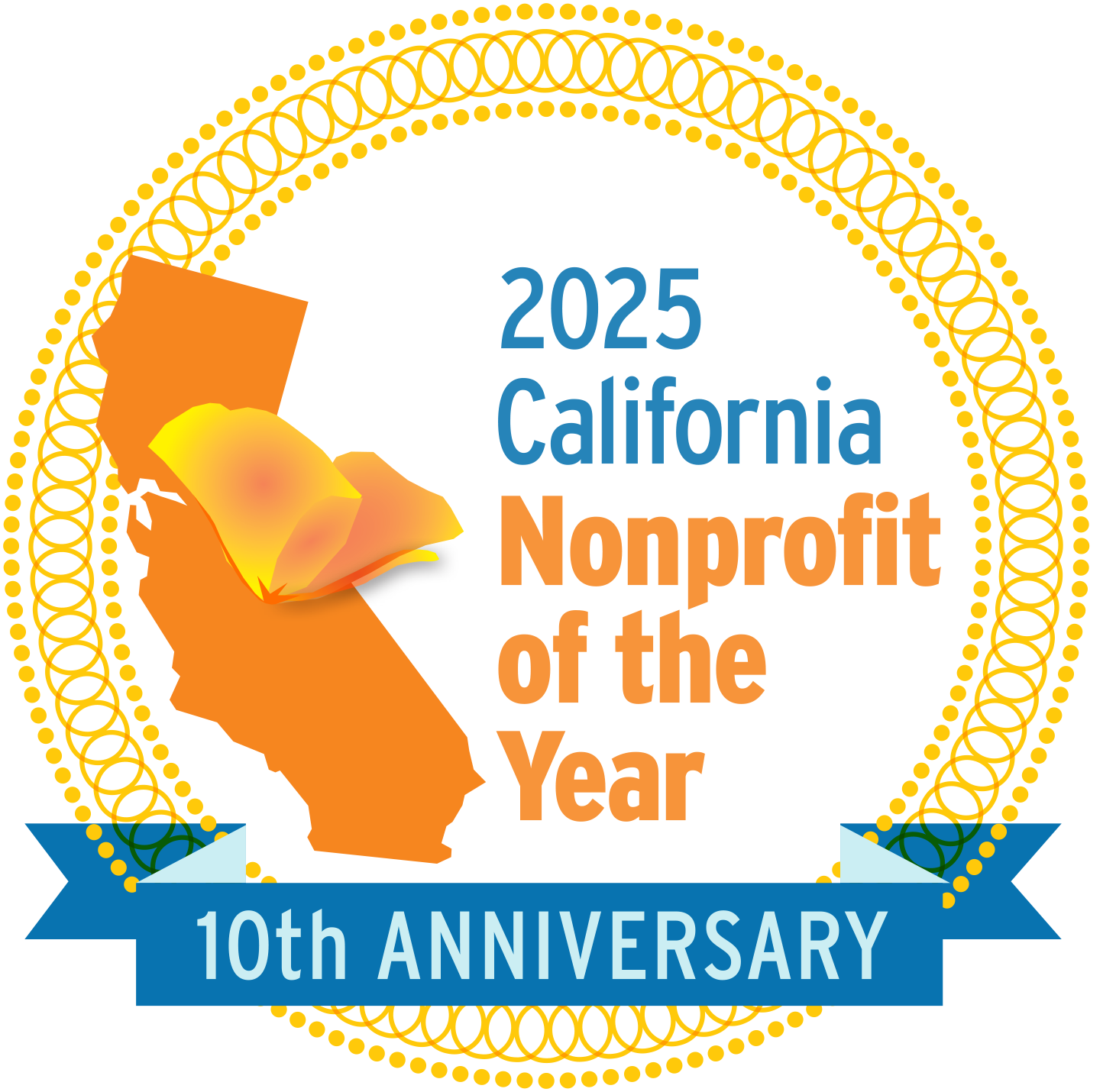Prison may seem like an unlikely place to start a podcast, but more and more incarcerated people are doing just that. In recognition of this growing movement, the first-ever International Prison Radio Conference brought together practitioners from around the world to Oslo, Norway, in June.
“It was cool to see there is a community in other countries working on radio programs,” said Ninna Gaensler-Debs, a reporter at KALW in San Francisco who directs the team behind Uncuffed, a podcast produced at California’s San Quentin State Prison.
Held June 15–18, the conference included presentations, discussions, and tours of Norway prisons and drew representatives from prison radio programs in Israel, Austria, England, India, Trinidad, and Norway. Prison Radio International, a U.K.-based organization, staged the event, which was hosted by the Norwegian Prison Services. It aimed to foster discussion about how prison radio programs can work together to increase their impact.
“Knowing that there are other countries that have ideas about storytelling, that work through the various issues and red tape of a prison to use story power to create good change, feels like you are not alone,” Gaensler-Debs said. “There are tons of different things that you can now do when you know that you have strength in a collective. This is the beginning of so many opportunities and ideas and ways for people to come together and become stronger individually as storytellers and change-makers, but also together to get more people’s stories out there and effect change.”
After Tommy “Shakur” Ross was paroled from San Quentin in April, ending 36 years in prison, he scrambled to get a passport and permission from his parole officer to fly to Oslo. Ross has been part of San Quentin’s radio program since its inception in 2012. He became a co-host and co-producer of Uncuffed when it launched from San Quentin after starting in Solano State Prison in 2018.
Ross spoke at the conference about how the radio program started at San Quentin, which began with KALW being invited to train incarcerated people to tell their own stories.
“It was surreal,” Ross said. “I wasn’t out on parole 60 days before visiting a prison overseas.”
KALW raised funds through its website to take six formerly incarcerated men to Norway and pay them for their time. “Fundraising was not easy, but we pulled it off,” Gaensler-Debs said.
“There was no way we would go and not bring everyone we could,” Gaensler-Debs said. “If anyone needed to speak, it was [system-impacted people].”
Thanh Tran was paroled from San Quentin in May after serving more than 10 years. He shot videos for Forward This, a film production crew run by incarcerated people, and hosted and produced for Uncuffed.
“Uncuffed taught me how to start a podcast from scratch,” Tran said. “These are employable skills that empowered me to go to Norway.”
At the conference, Tran spoke about why journalists should use “people-first” language. Calling someone an “inmate” dehumanizes them. Journalists should use the person’s name or the term “incarcerated person,” Tran told the international audience.
“A lot of people at the conference were saying ‘inmate,’” said Angela Johnston, an editor, and instructor with Uncuffed. “Words matter. Changing one word can change a lot of things.”
‘Prisons are prisons all over the world’
The Uncuffed crew split into two groups to tour prisons in Norway. The country is known for its progressive system. Facilities have cells with showers and private bathrooms. Each unit has a kitchen, and prisons have grocery stores. Correction officers socialize with their wards, sharing meals, discussing problems, and playing games.
Norway’s award-winning Rover Radion, which translates to “Bandit Radio,” rivals its American counterparts. Created by incarcerated people, it can be heard outside the prison walls as a podcast and as a weekly half-hour show on a Norwegian government radio station. Yet while conditions in Norway prisons sound like those of a luxury hotel compared to San Quentin, budget cuts have led to 22-hour lockdowns, Tran reported.
“Prisons are prisons all over the world,” said Adamu Chan, a photographer, and filmmaker who was paroled from San Quentin in 2020. While incarcerated, he co-produced and co-hosted First Watch, a video show. KALW hired him to conduct interviews for Uncuffed in Oslo and take photos at the conference.
“Conditions are different, but the emotional experience and purpose of prisons is the same everywhere,” Tran said. “A prison may look like a hotel, but we need to understand what’s going on inside the walls and inside of the people.”
Tran and Chan said they see the potential for audio journalism to make a difference. “Its heartening prison radio is being used all over the world as a tool … to advocate for people,” Tran said.
“It’s interesting to think about what the insider perspective is,” Chan added. “The administration usually sets the narrative, but when we can hear the perspectives from people inside, the emotional experience is powerful and can create a public consciousness beyond some entertainment value.”
Representatives with Uncuffed said they left the conference with plans to continue networking and to start cross-promoting with other prison productions. Gaensler-Debs said she has started following up with connections she made. In July, just a few weeks after the conference, she visited England for a friend’s wedding and toured a prison where she checked out the country’s National Prison Radio program.
“They have a much nicer studio than we do, but they only broadcast inside,” Gaensler-Debs said.
Members of the Uncuffed team said they see the conference as a gateway to new opportunities.
“I’m excited about the next conference to go further because we didn’t get to talk about: How do you run your prison radio program?” Gaensler-Debs said. “I felt like this conference was the 101 where you just learn the basics, but now that we have the connections, we can level up on an international level and have more specific conversations. I would love for us all to focus on one topic and do a bunch of shows and programs from prison talking about that one topic.”
Both Uncuffed and Ear Hustle are producing episodes about their teams’ Norway adventures that will share more details about their experiences. In the meantime, Tran mentioned an added value he got from traveling to Norway.
“When you’re traveling, you’re your true self,” Tran said. “There’s no stigma because nobody knows you have been to prison. I was just Thanh Tran, exploring the world.”
Attribution: This article originally appeared in Current on Oct. 17, 2022. Photo/Adamu Chan
